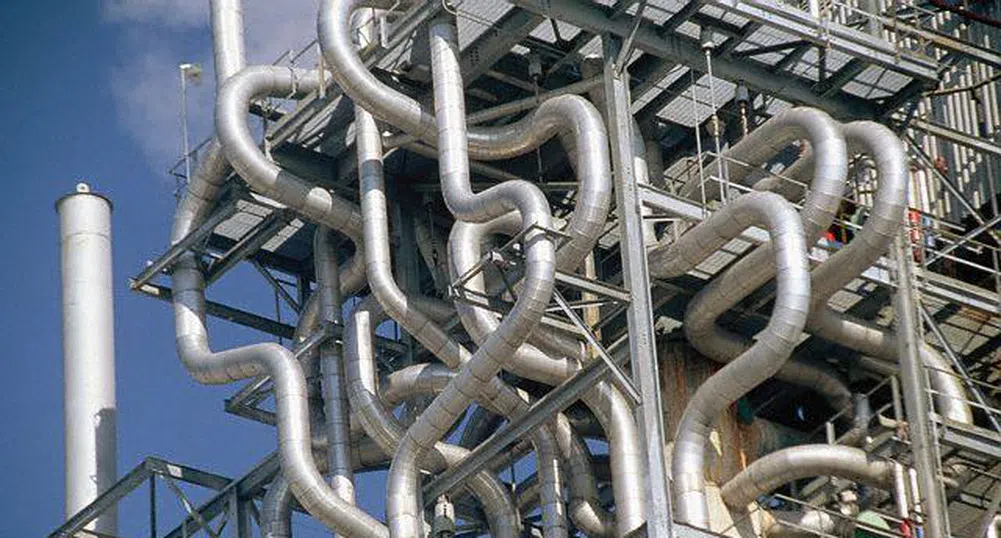Politicians Discuss Chances of Reducing Russian Gas Price

"There is a chance that we can renegotiate the price of natural gas with Russia," Bulgarian Economy,
Energy and Tourism Minister Traicho Traikov said on Thursday. He noted that the current agreement on the supply of Russian natural gas to Bulgaria will expire in 2011.
Sofia has prepared a package of proposals to the Russian partners. Traikov said the proposals are aimed to protect his country's national interests.
He blamed the growing gas price on former Bulgarian energy minister Roumen Ovcharov (served August 2005 - June 2007). According to him, Ovcharov was the first minister to yield to Russian pressure and change the gas supply agreement.
Peter Dimitrov, who succeeded Ovcharov as energy minister between July 2007 and July 2009 under the same prime minister, Sergei Stanishev, said on bTV that Bulgaria's gas supply agreements with Russia were signed in 1998 by the then deputy prime minister and minister of regional development and public
works Evgenii Bakurdjiev, of the government of prime minister Ivan Kostov. "Important things have been inherited from the Kostov government [1997-2001], because it was then that negotiations were held for [gas] supplies to Turkey using a new pipeline via Bulgaria," Dimitrov said. "Ivan Kostov's government caused that deal to fail, and then the Russians built the Blue Stream pipeline on the bottom of the Black Sea."
Dimitrov recalled that Bulgaria signed a supplementary gas supply agreement with Russia in 2006 under prime minister Stanishev and energy minister Ovcharov. The supplementary agreement was necessary because Russian gas supplier Gazprom had issued an ultimatum to Bulgaria: either accept a gradual increase of the gas price to the market level, or urgently pay 4,000 million US dollars for the difference between the amount of gas ordered by Bulgaria and the amount actually supplied to the country.
The ultimatum was based on a provision signed by minister Bakurdjiev back in 1998, under which the natural gas price for Bulgaria remained relatively low, but Bulgaria had to pay for the full amount of gas it ordered from Russia, although it might use less than that amount. As the Bulgarian economy shrank, the
country used less gas than it had ordered. Consequently, the country had to pay Russia 4,000 million dollars in compensation for ordered but unused gas by 2006. The compensation was expected to increase to 7,000 million dollars by the end of 2010, Dimitrov said.
According to the 2006 supplementary agreement, Bulgaria accepted a gradual increase of the gas price to the market level. Thanks to that agreement, Bulgaria currently pays the lowest price for Russian gas in the entire European Union, Dimitrov said.
According to him, the only possible way now to reduce the gas price is to negotiate with the Russians, telling them that the economy is in a crisis and drawing their attention to the fact that the two countries are involved in joint energy projects, such as South Stream, Belene and Bourgas Alexandroupolis, in which Russia holds large stakes, so things could be balanced off by considering the Bulgarian interests.
Discussing alternative routes of natural gas supply, Dimitrov said that a planned link between the gas networks of Bulgaria and Greece has been delayed until at least 2013, which means that in the meantime Bulgaria will have no alternative to Gazprom.
The Bulgaria-Greece gas link project has been adversely affected by indications that Sofia will withdraw from the Bourgas-Alexandroupolis oil pipeline project on grounds that it is mainly in the interests of Russia and Greece, but not Bulgaria. Similarly, Greece may refuse to build the gas link with Bulgaria because it would satisfy mainly Bulgaria's interests, but not Greece's, Dimitrov reasoned. "We have cooled our relations southwards, and we have cooled our relations northwards, where we could have gained something, and as a result of that, we have nothing," the former energy minister said.
"We expect responsiveness, political understanding for better prices, but at the same time we behave arrogantly. Arrogance towards Moscow is simply anti-Bulgarian, it is unwholesome," Dimitrov said. He described the recent recall of the Russian trade representative, Alexander Tomilov, from Bulgaria as "an
important sign". "When a country recalls its trade representative from somewhere, it wants to say: we have no trade and economic interests here," he said, describing the situation as "a cold war with Russia". He believes that Turkey stands to gain from the situation as it aspires to reemerge as a key player in the region.
Source: BTA
)
&format=webp)

&format=webp)

&format=webp)
&format=webp)
&format=webp)